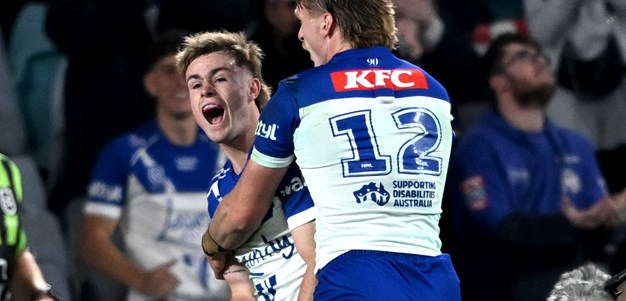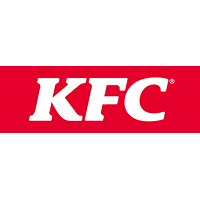It looks like you may be using adblocking software to view this site.
Many features on the site, such as video playback, may not work properly when using adblocking software.
Please whitelist our domain or disable your adblocker to access all features and videos.
As hundreds of current and former Canterbury-Bankstown Bulldogs players prepared to form a guard of honour for the final departure from Belmore Sports Ground of Steve Folkes, his sister-in-law and new club chair Lynne Anderson declared: "This is who we are".
The service for Folkes, who died suddenly of a heart attack last week aged 59, was more than just a celebration of the life of the former club stalwart – it was a re-enforcement of Bulldogs culture.
Folkes, who passed away one day short of the fifth anniversary of the death of his wife Karen, the daughter of Bulldogs patriarch Peter "Bullfrog" Moore, defined that culture from the time he joined the club in 1978 until the end of his 11-year coaching reign in 2008.
In between, he won four premierships as a player and guided the Bulldogs to grand final glory in 2004, but those who worked or played alongside and under him said he achieved much more during his 245 games as a secondrower and 288 matches as coach.
"I walked through here the other day and once again saw the Bulldogs values on the wall. Tough. Resilient. Family. This is Steven to a tee," said Alan Thompson, who studied teaching with Folkes in Wollongong and later became the Bulldogs football manager. "His personal values represent the culture of this great club and this was how he lived his life."

Peter Mortimer, another close friend and a former team-mate, said Folkes had set the standards for training and playing in his first season, which coincided with the appointment of renowned fitness guru Dave Cooper.
"Steve always finished 1,2 or 3 in any drill Dave set," Mortimer recounted. "He created a culture which has developed and become club standard, even today. The culture is 'never give up, never let your mate down and if you are going to do something give it everything you have got'."
Former Bulldogs captain and current director Steve Price, who played under Folkes and his brother-in-law Chris Anderson, another new director, said: "The difference between Chris and Folkesy was that you didn’t have to beat Chris at training".
However, Folkes' greatest attribute may have been his ability to keep the team together amid the adversity of the 2002 salary cap scandal and the 2004 police investigation into sexual assault allegations during a pre-season camp in Coffs Harbour.

"In 2002, we didn't get to do what we set out to do and we had a number of meetings here about the salary cap," Price said of the 37 competition points the club was docked for cheating the salary cap.
"On the day the NRL CEO at the time, David Gallop, rang to tell us the findings, we were here late and I got a phone call on my way home from Folkesy.
"He said 'I got pulled up by the police on the way home and the policeman said you are going to lose three points'. Folkesy said 'I just lost 37 so another three is not going to make any difference'.
"He set a standard, he was tough, resilient, he certainly got everything out of himself that he could and he did the same with his players.
"In 2004, he was the biggest supporter of all the players with what we were going through and the reason that group of boys won the comp that year was because of him.
"If you look at how the year started and how it finished, there wouldn't be too many teams or clubs that would have been able to do that."
Former team-mate Graeme Hughes said Folkes legacy could be to reunite the club after the recent football club board elections in which Bulldogs great Steve Mortimer was the only incumbent to survive.
"Naturally they are wanting to go back to what we were, the blue-and-white, and if you wanted an example of that they have got it here in Folkesy," Hughes said.
"What he bought through all of those eras from 'The Entertainers' to 'The Dogs of War' and then as a coach, he just embodied everything about the club."

Hughes was among hundreds of current and former players who attended the service, including Terry Lamb, Hazem El Masri, Dean Pay, Andrew Ryan, Darren Britt, Tas Baiteri, George Peponis, Royce Simmons, Steve Roach, Michael Hagan, Wayne Pearce, Paul Dunn, Darryl Brohman, Andrew Farrar, Bradley Clyde, Josh Reynolds, Trent Hodkinson, Willie Mason, Mark O'Meley and Braith Anasta.
"To send him out here at Belmore Oval is very special," Anasta said. "There is not many people in our game who can achieve what he has achieved, both as a coach and a player - and as a human being.
"He deserves the accolades he has received and the support of the people who have turned out here today, whether it be fans or ex-players, just shows the integrity of the man.
"Folkesy embodies the culture of the Canterbury Bulldogs - toughness, standing by your mate, family. That is why he was so successful and that is why the club when he was playing or coaching usually did pretty well."
Jillaroos captain Ruan Sims was among the speakers and told of the impact Folkes also had on the women's game by introducing a new level of professionalism during his time as coach between 2014 and 2016.
After the eulogies, Reverend Ken Clendenning, the club chaplain from 1993 to 2008, called on former team-mates, coaches, colleagues and players Folkes had coached to form a guard of honour for his casket, while Anderson thanked the Bulldogs family and broader rugby league community.
"We know that he never wanted anything churchy but he forgot that this really is the church of the Bulldogs," she said.

















